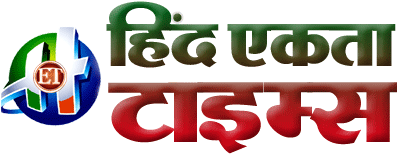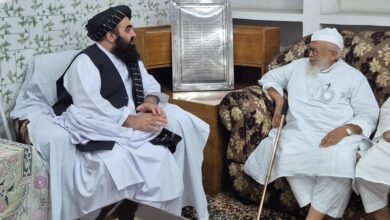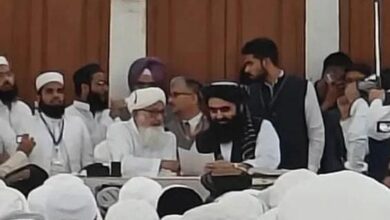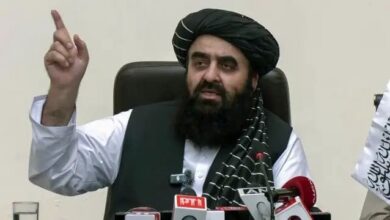पंजाब में नशा बेचने वालों को बख्शा नहीं जाएगा: अरविंद केजरीवाल
[ad_1]
नई दिल्ली, 2 मार्च (आईएएनएस)। पंजाब की मुख्यमंत्री भगवंत मान ने दावा किया कि राज्य में नशे और नशा तस्करी के खिलाफ निर्णायक लड़ाई लड़ी जाएगी और नशा का कारोबार करने वालों को बख्शा नहीं जाएगा। मान के इस दावे का आम आदमी पार्टी के राष्ट्रीय संयोजक अरविंद केजरीवाल ने समर्थन किया है।
उन्होंने सोशल मीडिया प्लेटफॉर्म एक्स पर लिखा, “पंजाब में नशे के खिलाफ हमारी सरकार ने महायुद्ध छेड़ दिया है। नशे ने हमारे युवाओं और बच्चों को बड़ी संख्या में बर्बाद कर दिया। नशा बेचने वालों को बख्शा नहीं जाएगा। पंजाब से नशे को हमेशा के लिए खत्म किया जाएगा।”
दरअसल, मुख्यमंत्री भगवंत मान ने हाल ही में दावा किया कि किसी भी स्थिति में नशे को पंजाब से समाप्त करने के लिए हर संभव कदम उठाए जाएंगे। इस अभियान में पुलिस, स्थानीय प्रशासन और अन्य सरकारी विभागों का सहयोग लिया जा रहा है।
इसी कड़ी में मंत्री और उच्च प्रशासनिक अधिकारी लगातार मुख्यमंत्री के साथ बैठकें कर रहे हैं। जानकारी के मुताबिक मुख्यमंत्री मान ने अधिकारियों को स्पष्ट निर्देश दिए कि वे नशे के खिलाफ अपनी कार्रवाई को तेज करें और इसे जड़ से खत्म करने के लिए ठोस कदम उठाएं।
पंजाब सरकार ने नशे के खिलाफ अपनी मुहिम को और तेज करते हुए शनिवार को वरिष्ठ कैबिनेट मंत्री हरपाल सिंह चीमा के नेतृत्व में पांच मंत्रियों की बनी सब कमेटी की पहली बैठक आयोजित की। इस बैठक में नशे से जुड़ी सभी गंभीर समस्याओं पर विस्तार से चर्चा की गई।
बैठक में कैबिनेट मंत्री अमन अरोड़ा, तरुणप्रीत सिंह सोंध, डॉ बलबीर सिंह और लालजीत सिंह भुल्लर भी मौजूद थे। इसमें पंजाब के डीजीपी गौरव यादव और राज्य के मुख्य सचिव केएपी सिन्हा भी शामिल हुए। सभी ने नशे के खिलाफ राज्यव्यापी अभियान को लेकर मंथन किया। मंत्रियों को कुछ जिले सुपुर्द किए गए हैं।
मंत्री हरपाल चीमा को पठानकोट, गुरदासपुर, नवांशहर, रोपड़, तरनतारन और होशियारपुर जिलों का प्रभार सौंपा गया है। वहीं, कैबिनेट मंत्री अमन अरोड़ा को लुधियाना, पटियाला, कपूरथला, मोहाली, अमृतसर और जालंधर जिलों की जिम्मेदारी दी गई है।
मंत्री तरुणप्रीत सोंध को संगरूर, बरनाला, बठिंडा, फतेहगढ़ साहिब, मोगा और मलेरकोटला जिलों की निगरानी सौंपी गई है। वहीं, मंत्री लालजीत सिंह भुल्लर को फरीदकोट, मुक्तसर, मानसा, फाजिल्का और फिरोजपुर जिलों की जिम्मेदारी दी गई है।
स्वास्थ्य मंत्री डॉ बलबीर सिंह को पूरे पंजाब का हेल्थ इंफ्रास्ट्रक्चर और हेल्थ डिपार्टमेंट की निगरानी की जिम्मेदारी सौंपी गई है। वे राज्य में स्वास्थ्य सेवाओं से जुड़े प्रशासनिक कामकाज की समीक्षा करेंगे और नशे की समस्या से जुड़ी स्वास्थ्य सेवाओं को और बेहतर बनाने के लिए कदम उठाएंगे।
–आईएएनएस
एकेएस/केआर
[ad_2] Disclaimer : ऑटो फ़ीड्स द्वारा यह न्यूज़/समाचार स्वतः प्रकाशित हुई खबर है। hindektatimes.com टीम के द्वारा किसी भी तरह का कोई बदलाव या परिवर्तन इस न्यूज़/समाचार में नहीं किया गया है। इस न्यूज़/समाचार की एवं इसमें उपयोग में ली गई सामग्रियों की सम्पूर्ण जवाबदारी केवल और केवल न्यूज़ एजेंसी की हैद्य न्यूज पोर्टल की कोई भी जिम्मेदारी नहीं है।
इनपुट. आईएएनएस के साथ





